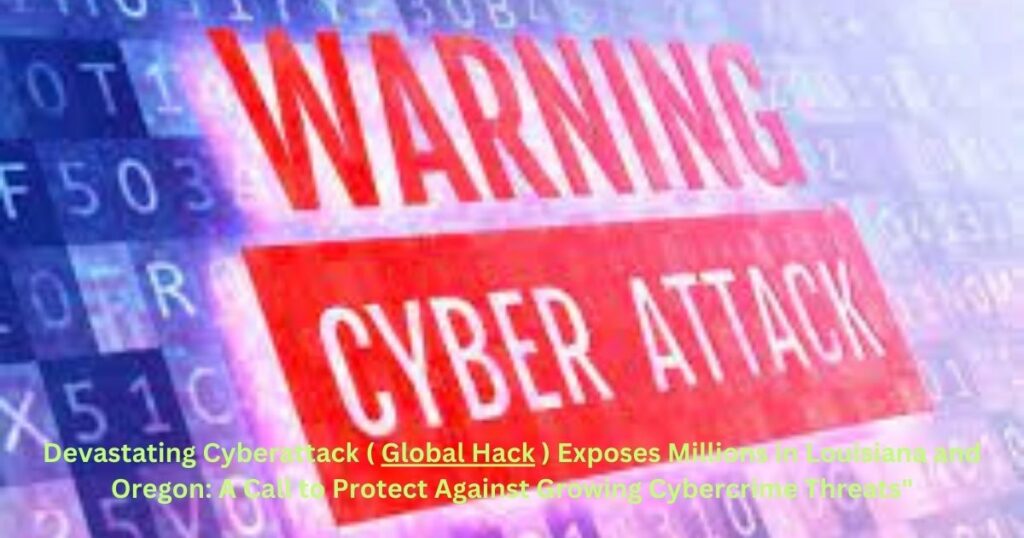
Global Hack
“Devastating Cyberattack ( Global Hack ) Exposes Millions in Louisiana and Oregon: A Call to Protect Against Growing Cybercrime Threats”

The impact of a significant cyberattack (Global Hack ) has rippled across the United States, affecting both the federal government and millions of individuals in Louisiana and Oregon. This breach revealed sensitive personal information, such as names, addresses, Social Security numbers, and driver’s license numbers, leaving victims vulnerable to potential misuse. The perpetrators behind this attack are believed to be the notorious hacker group, “REvil.”
This recent cyberattack ( Global Hack ) is just one in a series of high-profile incidents that have targeted the United States in recent times. In 2021, the Eastern United States experienced severe fuel shortages due to a cyberattack on Colonial Pipeline, while in 2020, numerous organizations, including the US government, fell victim to a cyberattack on SolarWinds.
These alarming incidents serve as a stark reminder of the ever-expanding threat posed by cybercrime. As businesses and organizations increasingly rely on digital technology, they become more susceptible to attacks. It is crucial for them to implement proactive measures to safeguard their data, such as using secure passwords, enabling multi-factor authentication, and regularly updating their software.
Table of Contents
Individuals, too, have a role to play in protecting their identities. By closely monitoring their credit reports for any suspicious activity and promptly placing fraud alerts, they can mitigate potential damage. Additionally, considering a credit freeze can prevent unauthorized individuals from opening new accounts in their names without consent.
In the aftermath of this catastrophic security breach that impacted Louisiana and Oregon, there are concrete steps one can take to enhance personal security. By adhering to these precautions, individuals can minimize the repercussions of such incidents and fortify the protection of their personal information.
Additional steps you can take to safeguard yourself from cyber-attacks are listed below:

- Create secure passwords for each of your online accounts using a password manager.
- When possible, enable two-factor authentication (2FA).
- Update your programme frequently.
- Be cautious when sharing information online.
- Watch out for phishing emails and other scams.
The following actions should be taken if you believe you are the victim of a cyber-attack:

- Inform the authorities about the attack ( Global Hack )
- your credit report with a fraud alert.
- Enrol in a credit freeze.
- Keep an eye out for any unauthorized activity on your credit record.
- In case you observe any questionable behaviour, get in touch with your bank or credit card provider.
You may better safeguard yourself against the monetary loss and psychological distress that can come from a cyber-attack by following these procedures.
According to authorities, the hack has affected everyone in Louisiana who holds one of the 3.5 million Oregonians’ driver’s licences or state ID cards. The Louisiana governor’s office did not provide an estimate of the number of victims, but according to available data, more than 3 million Louisianians are licenced drivers. The states placed no blame on a specific party for the hack, but federal officials have linked a Russian ransomware gang to a larger cyber campaign that used the same software weakness.

Global Hack
Data from hundreds of organisations around the world may have been exposed by the extensive attack (Global Hack ) , which also compromised the Department of Energy and other US federal agencies as well as the BBC and British Airways, two big British firms. Although US and state governments maintain they have not received any demands, the Russian-speaking hackers who took blame for the attack are known to make multi-million dollar ransom demands.
ok
Auther: allykazmi




